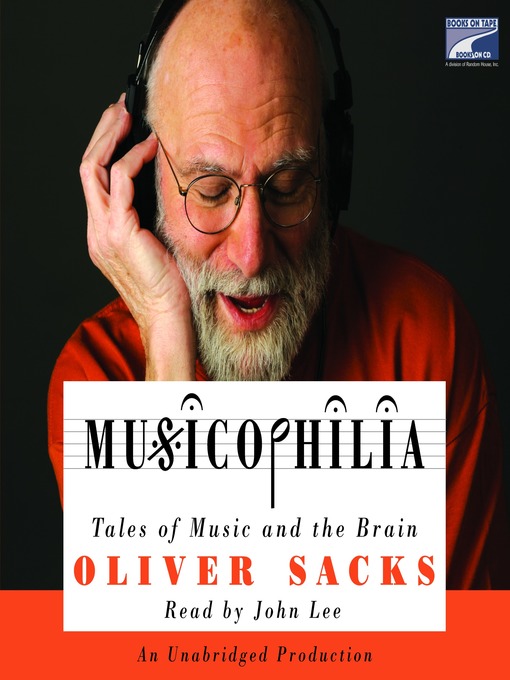
Musicophilia
Tales of Music and the Brain
داستانهای موسیقی و مغز:
کتاب های مرتبط
- اطلاعات
- نقد و بررسی
- دیدگاه کاربران
نقد و بررسی

John Lee's rich, rolling baritone conveys the empirical enthusiasm and underlying compassion that are the foremost characteristics of neurologist Oliver Sacks's books. In his latest work, Sacks observes the magical ways patients experience music after undergoing some sort of neurological trauma: an amnesiac who cannot remember anything but Bach fugues, a psychoanalyst bedeviled by musical hallucinations, otherwise mute stroke victims whose only articulation comes through song. Sacks's penetrating and lyrical insights, as well as his warmth and sense of wonder, are captured by Lee in an inspired reading. The added bonus, particularly given the subject matter, is the deep resonance of Lee's voice and his gift for a storyteller's inflection--something akin to music itself. M.O. (c) AudioFile 2008, Portland, Maine

October 15, 2007
Neurologist and professor Sacks, best known for his books Awakenings and The Man Who Mistook His Wife for a Hat, dedicates his latest effort to the relationship between music and unusual brain disorders. Embracing the notion that neurology is an inherently British phenomenon, foreign to the New World, Sacks's book is read by impeccably polished actor Prebble (PW's 2006 Narrator of the Year). As befitting so urbane and smooth a reader, Prebble sounds as if his shirt had just been starched and his lab coat carefully pressed before beginning. With nary a word out of place, Prebble steps onto the stage, playing the good Dr. Sacks for this one-time-only performance. Simultaneous release with the Knopf hardcover (Reviews, Aug. 27).

Neurologist Sacks, author of the acclaimed AWAKENINGS and THE MAN WHO MISTOOK HIS WIFE FOR A HAT, again mines his own medical practice and his wide knowledge of his specialty--this time in order to bring us "tales of music and the brain." The case studies included here illuminate the multifarious and often surprising ways in which music and the brain interact--whether for ill, as in a patient suffering from musical hallucinations, for example, or an obsession with music following an injury, or for good, as in Parkinson's patients and others who find themselves relieved or otherwise helped by music therapy. The narrator, British-born Simon Prebble, is a good choice for this material. (Sacks, too, is British.) The reading is clear and crisp, as is the production. M.G. (c) AudioFile 2008, Portland, Maine

























دیدگاه کاربران